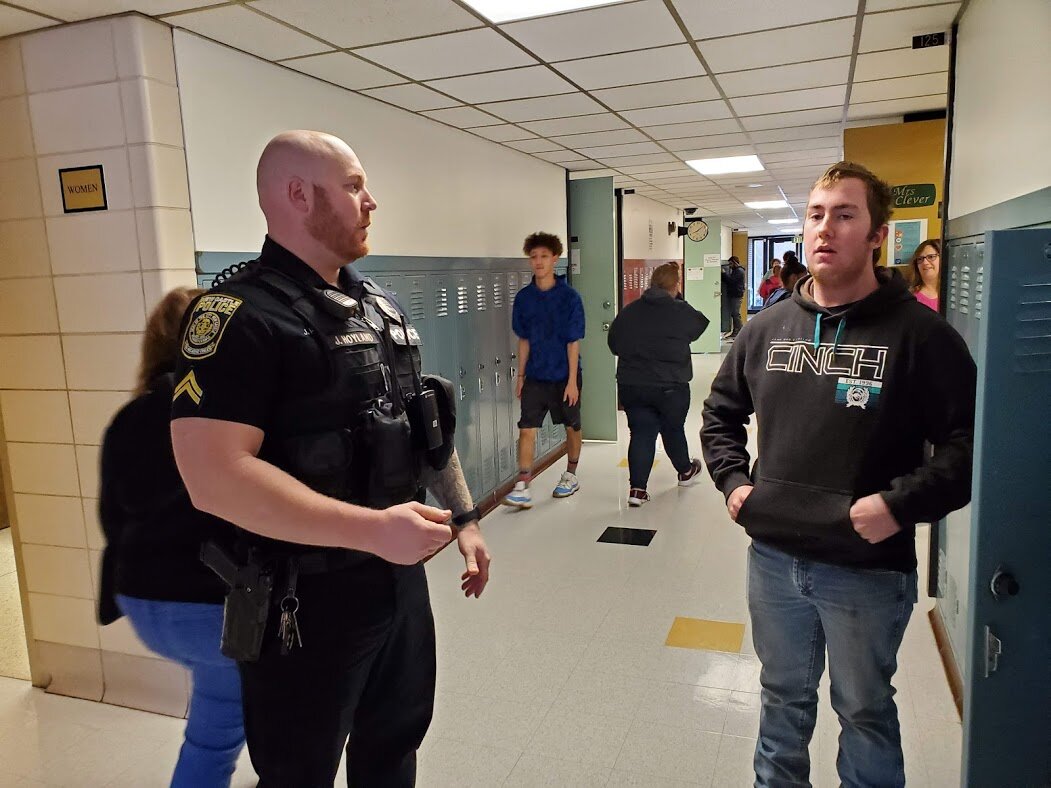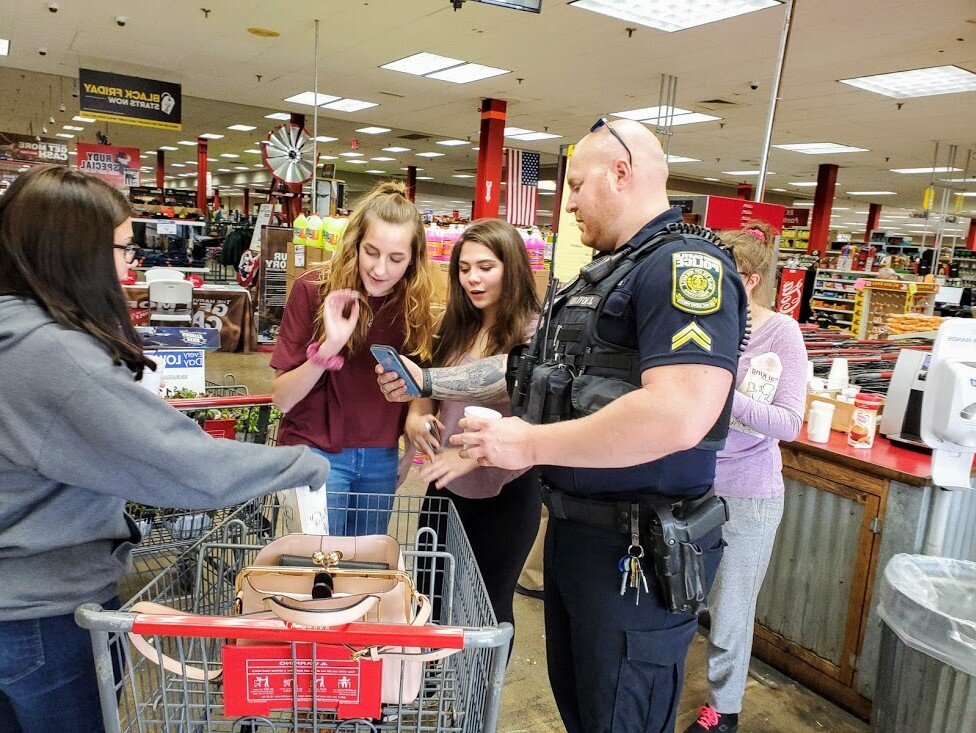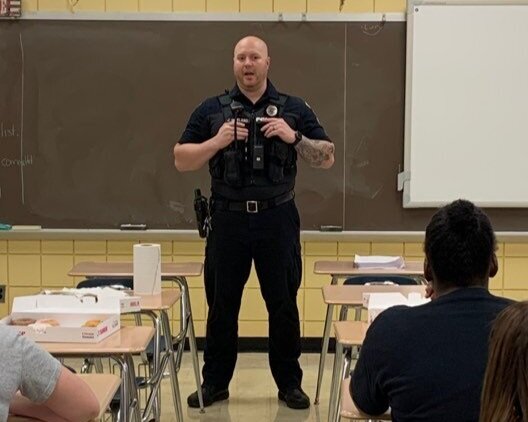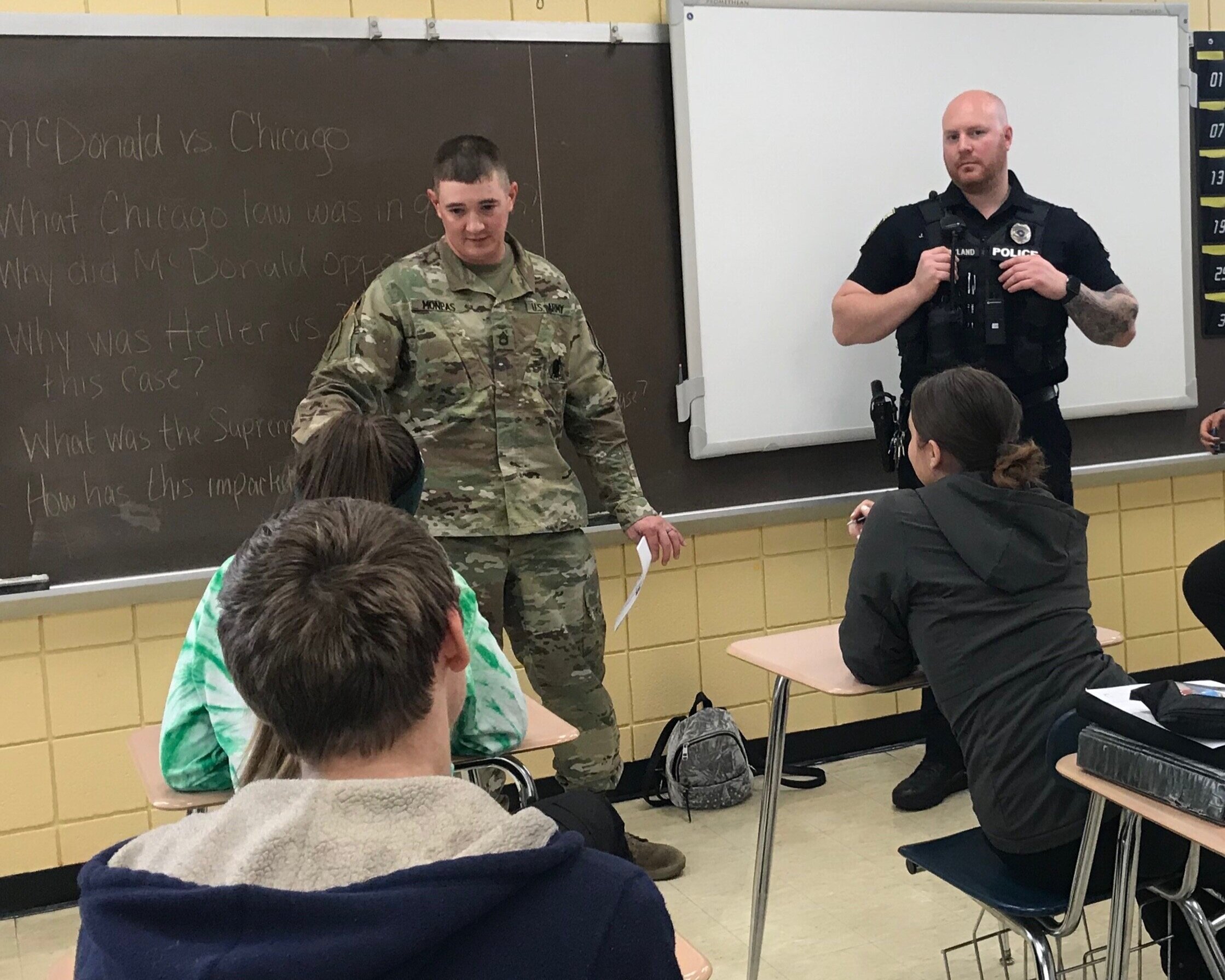TFiM Talk: Police Officer
by Elizabeth Edinger, senior Restaurant Trades
What does it take to become a police officer? In the latest TiFM Talk, Special First Class James M Monpas from the U.S. Army and LCCTC’s School Resource Officer Corporal Hoyland from the New Castle Police Department and patrolman for several years shared with interested students the answer to this question.
One of the best decisions for a young person to advance into a career as a police officer is to enlist in the military. The training needed for the military somewhat mirrors that of the training of a police officer. Servicemen and women fine-tune themselves both physically and mentally in the field and in the classroom. The training needed to handle weapons is basically the same. The fortitude and dedication needed to complete training would set any soldier ahead of a civilian.
“Plus, with the GI bill, any additional schooling needed to advance to the next level is paid for,” states Monpas. “Young men and women entering the academy with ‘points’ from the military puts them heads above the rest for acceptance, job selection, and the like!”
A career in law enforcement begins in the police academy with a series of written exams and physical training with a heavy dose of dedication. Once a person makes it into the academy, everyday, there is still training and more training.
Cpl. Hoyland shared that there are differences between the municipal police academy and the state police academy. First, the state academy will not accept progress from the local academy. The state will have the person start from scratch.
Both academies are challenging. The municipal police academy, where Cpl. Hoyland graduated, is approximately 900 hours and six months long. According to PATrooper.com, to become a state policeman, a person might dedicate up to 2245 hours of training and 28 weeks. Both academies are designed to “eliminate any cadet who does not possess the necessary intelligence, emotional stability, or physical stamina to meet the requirements. Not everyone was meant to be a police officer.
One question for Cpl. Hoyland was this: “Why did you want to be a cop?”
“Most of my family was in the military,” he responded. It seems that a strong sense of duty was a driving force.
“I thought it was cool when I was a little kid and wanted to help people,” he states and then he adds with a smile, “I also liked to watch the TV show, Chips.”
From the casual pictures (see below) of Cpl. Hoyland “on the job,” you can see his desire to help — from checking in with students (even to talk cars), to giving of his own time to “shop with a cop” and share family photos, to giving the TiFM talk! Cpl. Hoyland is just a good guy who wants to make a difference, and he does.
During the TiFM talk, Cpl. Hoyland, who spent many years of his career on patrol, shared that a typical day involving daily patrol on the job involves mostly going to 911 calls when people need help or a crime has been committed. He said that there is a lot of paperwork involved, so good writing and keyboarding skills are needed to file police reports. When not responding to emergencies, patrolling in a police car also involves a lot of traffic enforcement. Patrol officers very often work hand-in-hand with other first responders such as fire departments and EMS during emergencies or accidents.
Cpl. Hoyland wants to make a difference in the world by helping people. He doesn't do it for the money; he is a police officer it because he really enjoys his job. Hoyland says he is happy about his career choice, and anyone who knows him can see that this is true.
Relatively new to LCCTC, Cpl. Hoyland is connecting with students with his friendly demeanor. We are all assured that if need be, Cpl. Hoyland is there to protect the school and everyone in it.




